
Posted on 11/13/2017 1:42:58 AM PST by ETL
Jupiter and Venus will pair up in the sky on Monday morning, shining brightly together shortly before sunrise.
The two planets will appear so close together that they may look like they are just one bright star rather than two planets.
This is the closest these two planets will appear all year, an astronomical event known as a conjunction.
Venus and Jupiter may appear very close to each other in the morning sky, but they are actually more than 400 million miles away from each other.
Venus and Jupiter will rise together about one hour before sunrise in the eastern sky, but they will remain low on the horizon.
The planets will be visible for around an hour before the light from the rising sun becomes too bright to spot the planets.
A telescope isn’t needed to see the planets as they are two of the brightest planets in the night sky. However, a telescope or a pair of high-powered binoculars focused on Jupiter will reveal the planet's colorful bands of clouds, as well as its four largest moons.
Those planning to use a telescope or binoculars during the event should use caution since the sun will be rising in the same part of the sky as Venus and Jupiter. Looking at the sun through a telescope or binoculars can lead to serious eye damage without the proper solar filters.
Mars will also be visible to the east before sunrise on Monday, appearing about halfway between Jupiter and the crescent moon. Mars is visible with the naked eye and appears slightly red compared to the stars around it.
The best viewing conditions in the United States early on Monday morning will be across the Mississippi Valley and over the interior West where skies will be mainly clear.
Clouds will obscure the conjunction for many other areas of the country; however, there may be enough breaks in the clouds in the central and northern Plains and the Southwest for people to spot the planets.
Venus and Jupiter will still appear close to each other on the days leading up to and following the conjunction, so if clouds block the event on Monday, onlookers can wake up early to view them before sunrise on another day.
However, the two planets won’t be quite as close as they will appear on Monday in the morning sky on days before and after the conjunction.
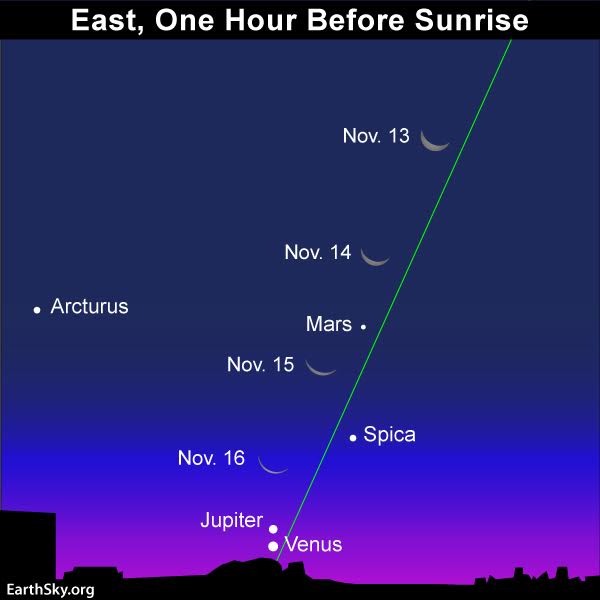
Astro ping...
The two planets will remain fairly close in the sky for days. It’s not only something for this morning, Monday, Nov 13, although they will be at their closest this AM.
See above diagram.
“Two of the five bright planets – Saturn and Mercury – are evening planets, but only Saturn is clearly visible after nightfall in early November, 2017.
Mercury is lost in the sunset glare during the first half of the month and will likely be seen after mid-month.
The other three bright planets – dazzlingly bright Venus, extremely bright Jupiter and super-faint Mars – adorn the morning sky, before sunup.
Venus and Jupiter will have a spectacular conjunction – albeit low in the sky – around November 13 [for several days].”
http://earthsky.org/astronomy-essentials/visible-planets-tonight-mars-jupiter-venus-saturn-mercury
Will it get close to Uranus ?
Of course Jupiter will be about 180 million miles further away from where it would appear it’s brightest to us. Just saying
No-go in in NE OK - hoping it’s a little more clear on Tuesday.
It's still fairly bright at magnitude -1.5 and easy to see from no matter where one is, including light-polluted big cities. Venus is a good deal brighter at -3.8 (the larger the negative value, the brighter an object is).
No.
However, back in June of this year, Venus, which rhymes with p__s, did apparently get close to URanus.

Agree completely. Like you, just stating a fact. Jupiter is close to its farthest from earth. If it was furthest it might be completely blocked out by the sun. And yes it is still a very bright object.
Just checked on Heavens-Above.com and Jupiter is currently 6.4 AU distant. An AU, as I’m sure you know, is the average distance bewteen the earth and the sun. It roughly equates to 92.5 million miles. 6.4 AUs is approximately 592 million miles. As for Venus, it’s currently at 1.6 AUs, or ~148 million miles. It can get as close as 23 or so million at times.
I usually round it up to 93.
A few years ago I began to watch Venus transit in front of the sun with a welding mask. Caught the very beginning. Then the clouds rolled in.
I’m not a scientist, nor do I play one on tv. I just tend to follow this stuff and occasionally play with the math.
Yeah, I caught the whole thing with my 17x70 tripod-mounted binocs. Me and the club I was in at the time set up scopes for the public to observe the 2004 event.
Here are some images I found on the net...
However, I'm not sure which are from the 2004 transit and which are from the 2012.
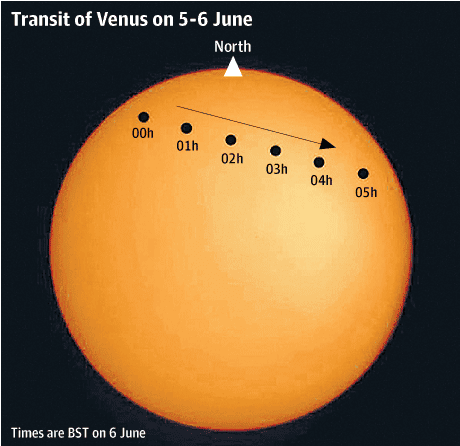
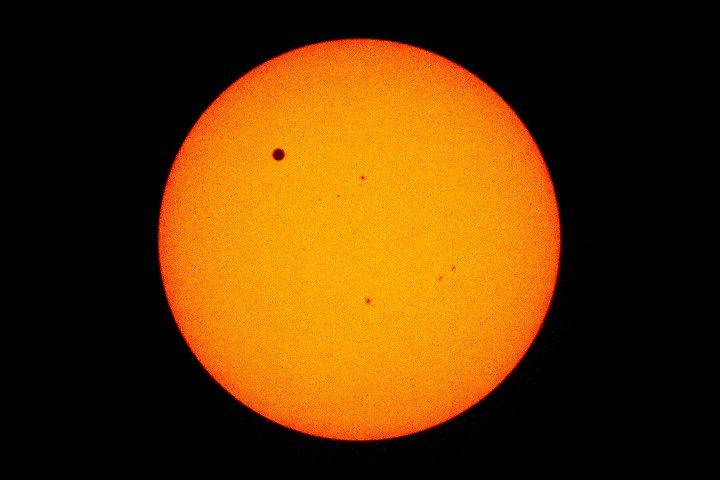


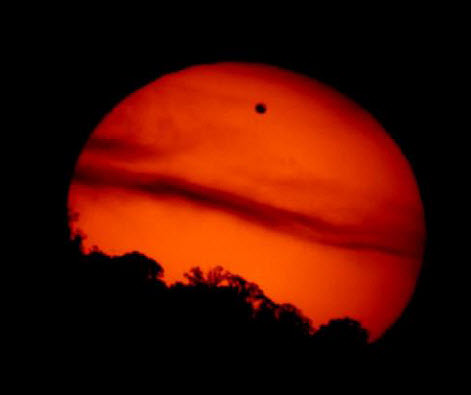


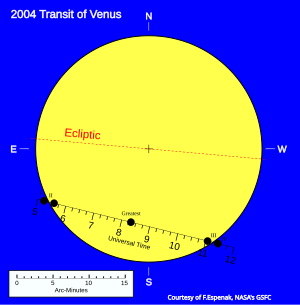

The photo of the transit with seabird and dock reminds me of 1976 or 1977. I was on my boat on Long Island Sound in a dense fog. The sun was not so low in the sky but as the fog burned off you could see large sunspots with the naked eye without needing protection for a few minutes.
This was during a sunspot maximum and we had some weird weather for a couple of years. Extreme summers and winters.
Interesting. I'm also in New York (Queens) and witnessed something similar to what you described during the recent partial solar eclipse. When thick clouds rolled by on the partly cloudy day you could easily see the black disk of the moon over a portion of the sun with the naked eye. Both appeared as distinct/clear disks through the passing clouds. An amazing sight.
Looked something like this...
Yeah I watched it at Stony Brook University. Brought 2 welding masks and a few cardboard glasses. The wife was outside with some of the chemistry department people who made those box camera things to watch the reflected images. Most of them enjoyed my toys better. Though some of the ‘cameras’ were pretty well made. No clouds or fog out there.
One of my sons drove down to Tennessee (or someplace like that) to watch in totality. He got some nice pix.
Venus and Jupiter will rise together about one hour before sunrise in the eastern sky, but they will remain low on the horizon.
Conjunction is just a dirty word when 2 planetary bodies get together.
Sorry, not sure. Let me check with democrat congressman, Hank Johnson, and get back to you.

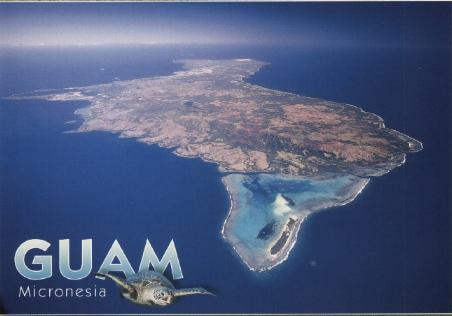


MUST SEE Video!!
https://www.youtube.com/results?search_query=Hank+Johnson+Guam

Disclaimer: Opinions posted on Free Republic are those of the individual posters and do not necessarily represent the opinion of Free Republic or its management. All materials posted herein are protected by copyright law and the exemption for fair use of copyrighted works.